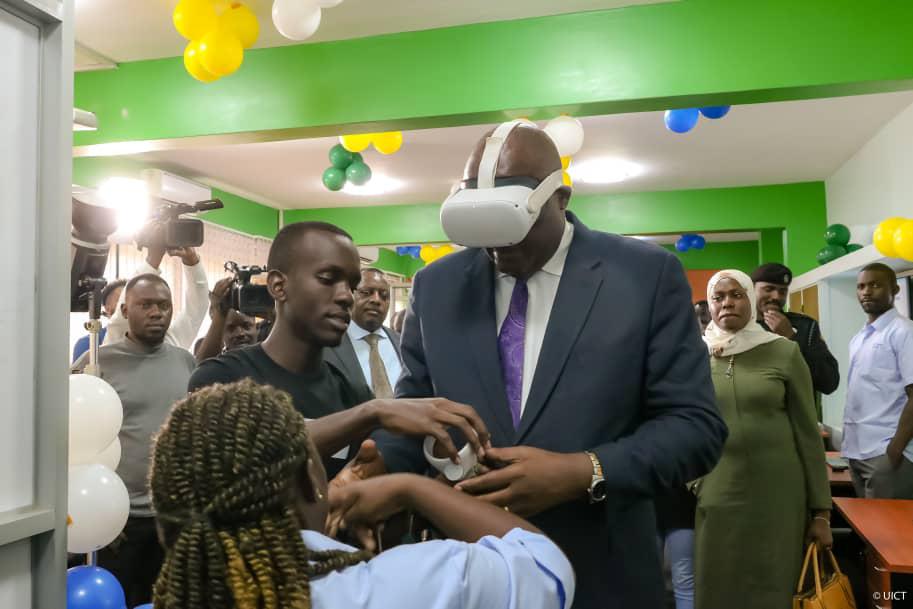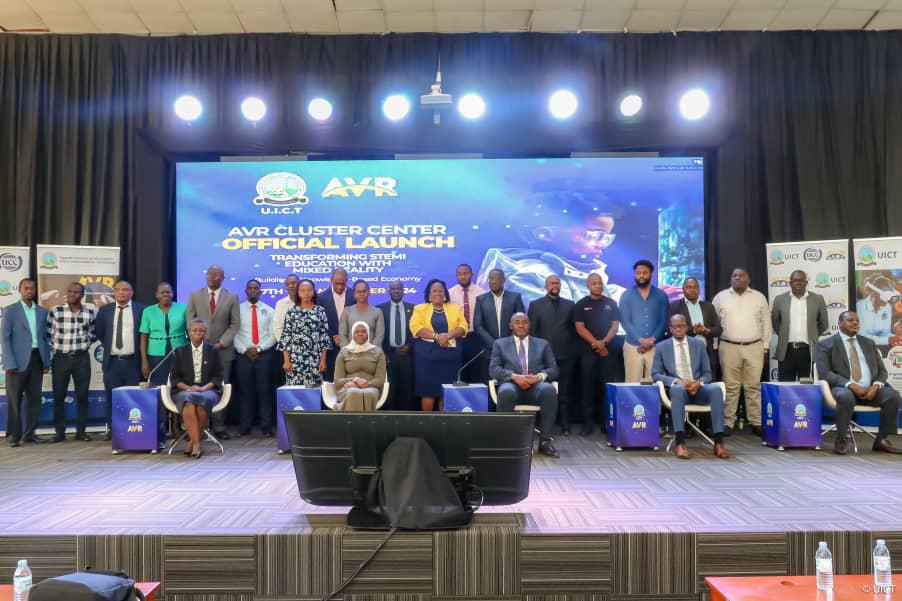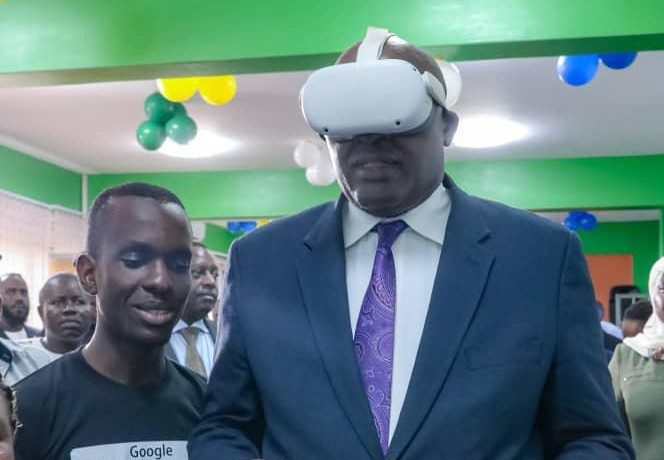Kampala, Uganda – The Uganda Institute of Information and Communications Technology (UICT) has officially launched its Augmented and Virtual Reality (AVR) laboratory, a cutting-edge facility designed to revolutionize science, technology, engineering, and mathematics (STEM) education.
Located at the UICT campus, the 20-capacity laboratory is equipped with the latest audio and visual technologies, virtual reality headsets, smart screens, augmented reality glasses, and high graphics processing computers.
This lab will serve as a critical resource for students and faculty alike, enabling them to engage in hands-on experimentation and research.


According to Edison Nkurunungi, the AVR Project Manager at UICT, the decision to incorporate AVR technology in teaching and learning arose from a need to modernize teaching methods, improve student engagement and equip learners with skills relevant to the digital age.
He also noted, that since the introduction of the project in January 2024, UICT has seen significant improvements in student performance in STEM subjects.
“Specific success stories include a marked increase in practical skills among engineering students and positive feedback from participants in virtual labs, demonstrating enhanced conceptual understanding,” Nkurunungi highlighted
Furthermore, he outlined that AVR technology has several benefits over traditional teaching methods including enhanced engagement through immersive experiences; improved retention and understanding of complex concepts; opportunities for experiential learning and experimentation in a safe environment and accessibility for remote learning and diverse learning styles.
Currently, AR and VR applications mostly focus on entertainment and games. However, the goal of the AVR lab is to provide students with the latest advancements in technology-based learning.
“As a government trustee, plans for scaling up AVR technology include expanding lab facilities, integrating more courses, and developing partnerships with tech companies for resources and training. Sustainability efforts will focus on continuous professional development for educators, exploring funding opportunities, and fostering a culture of innovation in teaching practices,” Nkurunungi stated














